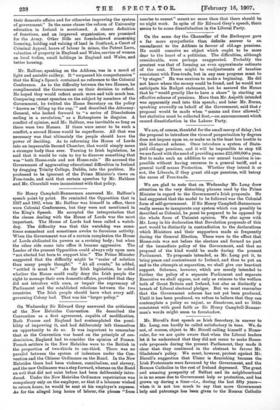On Wednesday Sir Edward Grey answered the criticisms of the
New Hebrides Convention. He described the Convention as a first agreement, capable of modification. Both France and England had contemplated the possi- bility of improving it, and had deliberately left themselves an opportunity to do so. It was important to remember that as the Convention was based on the principle of con- dominium, England had tu consider the opinion of France. French settlers in the New Hebrides were to the British in the proportion of two-thirds to one-third. There was no parallel between the system of indenture under the Con- vention and the Chinese Ordinance on the Band. In the New Hebrides there had been violence, cannibalism, and slavery, and the new Ordinance was a step forward, whereas on the Rand an evil that did not exist before had been deliberately intro- duced. Under the New Hebrides Ordinance repatriation was compulsory only on the employer, so that if a labourer wished to return home, he would be sent at his employer's expense. As for the alleged long hours of labour, the phrase "from
sunrise to sunset" meant no more than that there should be no night work. In spite of Sir Edward Grey's speech, there seems to be some dissatisfaction in the Liberal Party.






































 Previous page
Previous page